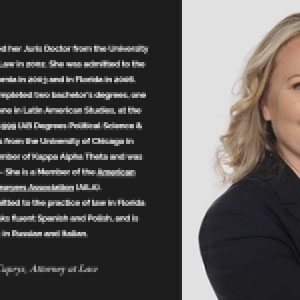
In January of 2020, Trump added new countries to his U.S. visa travel ban. This move will virtually block immigration from Africa’s most populous country, Nigeria. It will also block immigration from Myanmar, where Muslims are fleeing genocide. Additional countries include three more African countries: Eritrea, Sudan, and Tanzania. In addition, the former soviet state Kyrgyzstan has been added to the ban. Visa Travel Ban All of the banned countries have substantial Muslim populations. Immigrant visas will be banned for those in Nigeria, Myanmar, Eritrea, and Kyrgyzstan. Immigrants from Sudan and Tanzania will not be allowed to participate in the diversity lottery, which issues green cards to 50,000 people each year. The latest travel ban took effect on February 22, 2020. Immigrants obtaining visas before then will still be able to come to the United States. Nonimmigrant visas, including those for temporary employees and employees with specialized skills, will not be affected by the ban. In addition, some immigrants will be able to apply for…Read More

If you were the victim of a crime, you may be eligible for a U visa, which would provide you temporary nonimmigrant status in the United States. The U visa was created among growing public safety concerns and to encourage individuals who have been crime victims to cooperate with law enforcement in prosecuting criminals. If you are approved for a U visa, you will be given legal status in the U.S. with the potential for extensions. Once you have your U visa for three years, you may be able to apply for a green card. To obtain a U visa, it is not enough to simply state that you were the victim of a crime. You must provide a “certificate of helpfulness” from a government agency and show that you suffered mental or physical abuse by a U.S. perpetrator. U Visa Eligibility You must meet the following criteria to be eligible for a U visa: You must be the victim of “qualified criminal activity” that…Read More

Immigration Attorney Magdalena Cuprys succeeds in obtaining bond for client evicted from public housing as part of an eviction campaign in Pasco County Former public housing resident was accused of improperly receiving government benefits, but Immigration Court granted bond and release from custody Miami, FL (September 2018) The law firm of Cuprys and Associates announced today that immigration Lawyer Magdalena Cuprys succeeded in obtaining bond for a client, Ms. C.A., a Mexican citizen. C.A. was accused of improperly receiving public assistance payments and subsidized housing benefits in Pasco County, Florida, based on a fraudulent Social Security card that she had purchased for $100. She was taken into custody after an investigation at a subsidized housing project where 30 undocumented families and about 60 U.S. born children were evicted. According to news reports, some of the residents claimed that Housing Authority officials told them that they could live there regardless of their legal status in the U.S. as long as they had U.S. citizen children. Ms.…Read More
The United States Supreme Court announced the decision in Pereira v Sessions regarding the stop-time rule on June 21, 2018. In simple terms, the “stop-time rule” defines when continuous residence or continuous physical presence of a non-citizen ends. See INA § 240A(d). According to INA § 240A(d), continuous residence ends when either the non-citizen commits a criminal offense, or is served with a “Notice to Appear” (“NTA”) placing him/her in removal (deportation) proceedings. See INA § 240A(d)(1)(A)-(B). In this important decision, the Supreme Court pondered whether the stop-time rule is triggered when the government serves a non-citizen with a document that is labeled “Notice to Appear” but fails to specify either the time or place of the removal proceedings. Pereira v. Sessions is about Wescley Fonseca Pereira, a Brazilian citizen, who overstayed his visa in the United States. The visa expired on December 21, 2000. In May 2006, Pereira was served with a Notice to Appear by the U.S. Department of Homeland Security (DHS). While…Read More
Immigration Lawyer Magdalena Cuprys of the law firm Cuprys and Associates announced today that the Board of Immigration Appeals ruled in her client’s favor regarding a removal (deportation) proceeding. On appeal, citing Matter of Serna, the Board finds that mere possession of an altered immigration document, without intent to use it unlawfully, is not a “crime of moral turpitude.” The Board therefore reversed the Immigration Judge’s determination that the person should be sent back to Mexico on those grounds. Ms. Cuprys had sought a so-called “cancellation of removal” for her client L.R. (originally from Mexico) under Section 240A(b) of the Immigration and Nationality Act, which is a relief that allows a person who does not have legal status to remain here if he or she has been here for 10 years, has not committed serious crimes, and if removing him or her from the country would be a hardship for U.S. citizens or permanent residents such as children or other close relatives. In the initial…Read More
The law firm of Cuprys and Associates announced today that immigration Lawyer Magdalena Cuprys won a “withholding of removal” (client will not be deported) in Immigration Court after a convoluted legal struggle. Mr. C.M. is a 25-year-old Colombian citizen who entered the U.S. as a stowaway, and later filed an application for Asylum. All of C.M.’s applications for relief were denied by an immigration judge in August 2016. C.M. appealed to the Board of Immigration Appeals (BIA), which remanded the case to the Immigration Court to clarify and reconsider its prior findings. The Immigration Court found that C.M. had a credible fear of persecution if he were returned (deported) to Colombia. At the new hearing in Immigration Court, C.M. testified that three of his brothers were killed by a guerilla group, as well as two of his cousins. He himself was abducted and threatened. Based on that testimony, the Immigration Judge denied C.M.’s asylum request, but granted withholding of deportation. As the Court noted, for…Read More
Immigration client had committed minor offenses in the past; Immigration attorney successfully argued that such minor offenses do not disqualify client from asylum in the U.S. Immigration Lawyer Magdalena Cuprys of the law firm Cuprys and Associates announced today that the Board of Immigration Appeals ruled in her client’s favor in a disputed asylum case. Ms. Cuprys is a recognized immigration attorney based in Florida but represents clients not only in the United States but from outside of the U.S. as well. She filed an asylum case on behalf of her client H.C., a young man originally from Honduras. H.C. had been in the U.S. since the age of eight and feared persecution if he were to return to Honduras. Ms. Cuprys therefore presented his asylum request before an Immigration Judge. The Immigration Judge agreed with Ms. Cuprys and her client H.C., and granted asylum in the Fall of 2017. However, the Department of Homeland Security (DHS) appealed the Immigration Judge’s decision. In particular, the…Read More

U.S. to deport former Nazi concentration camp guard. The U.S. Court of Appeals for the Seventh Circuit has affirmed an order directing the deportation to Croatia of Anton Tittjung, a retired stone worker living in Kewaunee, Wisconsin. The Office of Special Investigations (OSI) of the Department of Justice uncovered evidence in captured Nazi documents of Tittjung’s showing membership in the Nazi SS and his service as a concentration camp guard. The Immigration and Naturalization Service (INS) ordered Tittjung’s deportation pursuant to the Holtzman Amendment [8 U.S.C. Section 1227(a)(4)(D)]. This provision demands the deportation of aliens who aided or otherwise took part in the Nazi persecution of persons because of race, religion, national origin, or political opinion. — According to the Department of Justice, OSI investigations of persons involved in Nazi atrocities have resulted in 63 persons losing their U.S. citizenship and in the removal of 49 from the U.S. Citation: Tittjung v. Reno, No. 98-3407 (7th Cir., December 2, 1999); U.S. Department of Justice press release…Read More

The following case addresses the problem of criminal aliens (including “permanent residents” of the U.S.) who have been detained by the Immigration and Naturalization Service (INS) but cannot be repatriated, thus resulting in their perpetual detention. Petitioner Kim Ho Ma came from his native Cambodia to the U.S. as a refugee at the age of two. He became a permanent resident (that is, he received a “green card”) at age six. Unfortunately, he had bad company, got involved in a gang shooting, and was convicted of manslaughter at age 17. After completing his prison sentence, the INS ordered him removed (previously called “deported”) from the U.S. and took him into custody. Cambodia does not have a repatriation agreement with the U.S. and refused to take him back. Ma filed a petition for habeas corpus. More than 100 similarly situated petitioners filed in the same court. Similar cases have arisen in Nevada and other California districts. The district court held that Ma’s continued detention violates his…Read More
Defendants Wayne Pierre, Ricardo De Four, Zion Clarke, Kevon Demerieux, Kevin Nixon, Christopher Sealey, and Anderson Straker, nationals of the Republic of Trinidad and Tobago, throughout the years abducted wealthy individuals, held them captive, and extorted ransoms from their family and friends. On April 6, 2005, they abducted a Trinidad-native and a United States citizen, Balram Maharaj, who visited his children in Trinidad. The defendants delivered Maharaj to an isolated camp deep within the forest where they tied him to a post and gave him little food and water. Maharaj suffered from severe diabetes, hypertension and tuberculosis. The defendants ignored his pleas for medication and used his worsening health as leverage to demand three million Trinidadian dollars from his family. After six days in captivity, missing the medication, Maharaj slipped into a diabetic coma and died. Defendants dismembered his body, packed the remains in Styrofoam containers and buried them in the woods. In late 2005, assisted by FBI, the Trinidad and Tobago Police Service uncovered…Read More